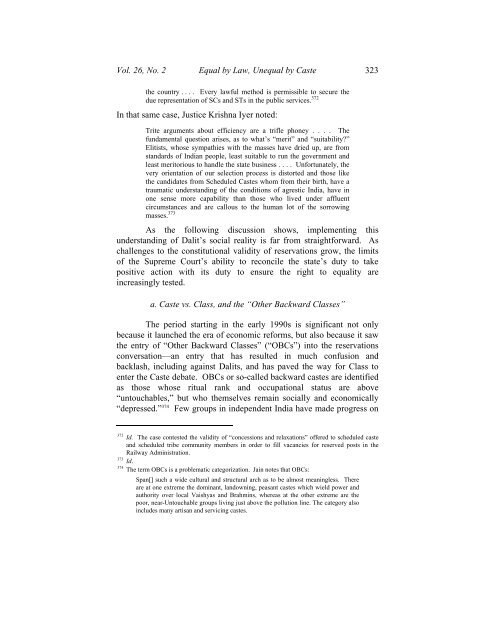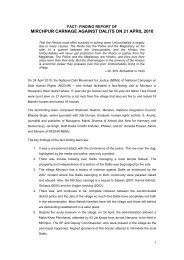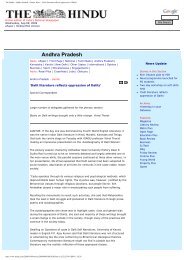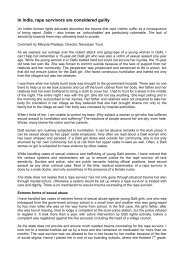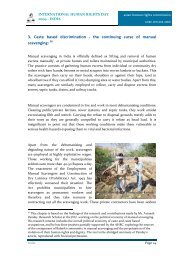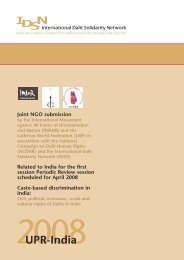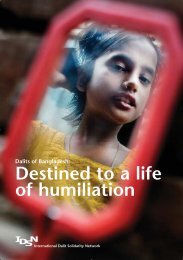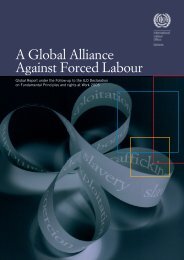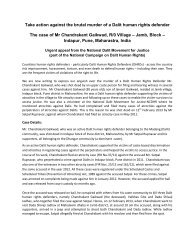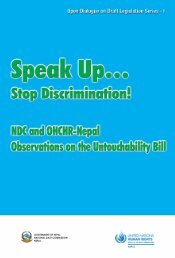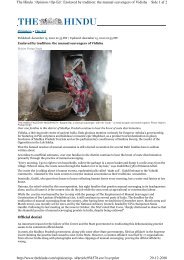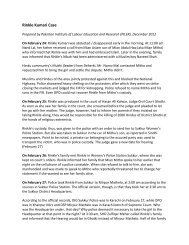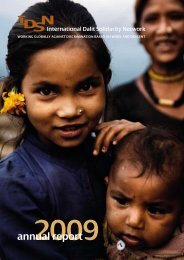equal by law, unequal by caste - International Dalit Solidarity Network
equal by law, unequal by caste - International Dalit Solidarity Network
equal by law, unequal by caste - International Dalit Solidarity Network
You also want an ePaper? Increase the reach of your titles
YUMPU automatically turns print PDFs into web optimized ePapers that Google loves.
Vol. 26, No. 2 Equal <strong>by</strong> Law, Un<strong>equal</strong> <strong>by</strong> Caste 323the country . . . . Every <strong>law</strong>ful method is permissible to secure thedue representation of SCs and STs in the public services. 372In that same case, Justice Krishna Iyer noted:Trite arguments about efficiency are a trifle phoney . . . . Thefundamental question arises, as to what’s “merit” and “suitability?”Elitists, whose sympathies with the masses have dried up, are fromstandards of Indian people, least suitable to run the government andleast meritorious to handle the state business . . . . Unfortunately, thevery orientation of our selection process is distorted and those likethe candidates from Scheduled Castes whom from their birth, have atraumatic understanding of the conditions of agrestic India, have inone sense more capability than those who lived under affluentcircumstances and are callous to the human lot of the sorrowingmasses. 373As the following discussion shows, implementing thisunderstanding of <strong>Dalit</strong>’s social reality is far from straightforward. Aschallenges to the constitutional validity of reservations grow, the limitsof the Supreme Court’s ability to reconcile the state’s duty to takepositive action with its duty to ensure the right to <strong>equal</strong>ity areincreasingly tested.a. Caste vs. Class, and the “Other Backward Classes”The period starting in the early 1990s is significant not onlybecause it launched the era of economic reforms, but also because it sawthe entry of “Other Backward Classes” (“OBCs”) into the reservationsconversation—an entry that has resulted in much confusion andbacklash, including against <strong>Dalit</strong>s, and has paved the way for Class toenter the Caste debate. OBCs or so-called backward <strong>caste</strong>s are identifiedas those whose ritual rank and occupational status are above“untouchables,” but who themselves remain socially and economically“depressed.” 374 Few groups in independent India have made progress on372 Id. The case contested the validity of “concessions and relaxations” offered to scheduled <strong>caste</strong>and scheduled tribe community members in order to fill vacancies for reserved posts in theRailway Administration.373 Id.374 The term OBCs is a problematic categorization. Jain notes that OBCs:Span[] such a wide cultural and structural arch as to be almost meaningless. Thereare at one extreme the dominant, landowning, peasant <strong>caste</strong>s which wield power andauthority over local Vaishyas and Brahmins, whereas at the other extreme are thepoor, near-Untouchable groups living just above the pollution line. The category alsoincludes many artisan and servicing <strong>caste</strong>s.


